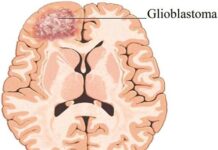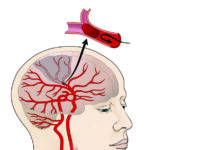An Emory University study published in Nature’s Molecular Psychiatry shows levodopa, a drug that increases dopamine in the brain, has potential to reverse the effects of inflammation on brain reward circuitry, ultimately improving symptoms of depression.
Numerous labs across the world have shown that inflammation causes reduced motivation and anhedonia, a core symptom of depression, by affecting the brain’s reward pathways.
In the Nature study, researchers demonstrated that levodopa reversed the effects of inflammation on the brain’s functional connectivity in reward circuitry and anhedonia (inability to feel pleasure) in depressed individuals with higher C-reactive protein (CRP), a blood biomarker produced and released by the liver in response to inflammation.
The study included 40 depressed patients with a range of CRP levels from high to low who underwent functional brain scans on two visits after receiving in random order either placebo or levodopa, a drug often prescribed for disorders like Parkinson’s disease.
Levodopa improved functional connectivity in a classic ventral striatum to ventromedial prefrontal cortex reward circuit but only in patients with higher levels of CRP. This improvement in reward circuitry in depressed individuals with higher CRP also correlated with reduced symptoms of anhedonia after levodopa.
























